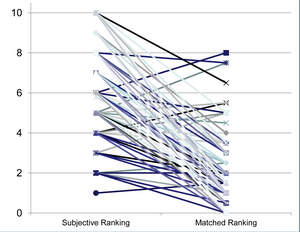SAN JOSE, CA--(Marketwired - Oct 28, 2013) - SoundCure today announces results of a patient study quantifying how patients with tinnitus (ringing in the ears) "hypermonitor" their tinnitus, the neurological phenomenon of perceiving tinnitus to be much louder than it is when measured objectively. These study results are highly statistically significant, and confirm that most patients seeking treatment suffer from an inaccurate perception of their tinnitus loudness.
For tinnitus sufferers, the potential "over perception" of tinnitus as very loud is considered more bothersome than perception of it as soft or not perceiving it at all. The ability to quantify this sensitivity gives both the patient and the clinician insight into the condition. This data offers a valuable tool to the clinician for patient counseling and explaining the potential long term benefits of sound therapy to address this hypermonitoring through habituation.
In this study, 119 tinnitus patients were evaluated using the SoundCure Serenade tinnitus treatment system. Patients were first asked to rate the loudness of their tinnitus on a scale of 1 (soft) to 10 (loud) resulting in a subjective loudness score. Then they rated a series of external tones, pitch-matched to their tinnitus, presented at different volumes. One of these tones was presented at a volume exactly matching their perceived tinnitus loudness. The ratings of the self-assessed tinnitus volume and its external equivalents were then compared.
A ranking of the tinnitus as louder than the external equivalent sound is an indication of hypermonitoring, the subconscious process of erroneously perceiving the tinnitus as loud when it should seem soft. Study results indicate 104 of 122 patients (85%) hypermonitor. On average, patients hypermonitor by 3.9 points (+-2.6) on a scale of 1 to 10. For 28%, the difference between the perceived and matched tinnitus loudness scores was greater than or equal to 6. This significant finding illustrates how much patients suffer from this over-perception. Restoring appropriate perception, and increasing the periods of time where the patient doesn't notice the tinnitus at all through habituation can bring substantial relief.
"This test and clinical finding can be a powerful tool for the patient to see that a real perceptual phenomenon is occurring," said Bill Perry, SoundCure CEO. "It offers valuable validation of the patient's condition. In demonstrating and quantifying this phenomenon, the hearing healthcare provider can more easily explain what long term sound therapy care through habituation can correct, and the benefit that can be achieved. Habituation provides longer windows of time where the patient does not notice his tinnitus, and it seems softer to him when he does notice it, providing relief in several ways. We continue to pursue new treatments and diagnostics for tinnitus sufferers."
About SoundCure, Inc.
SoundCure, Inc. is a privately held medical device company whose mission is to revolutionize the treatment of tinnitus and provide relief to the millions of people suffering its effects. SoundCure is an Allied Minds company. www.soundcure.com.
